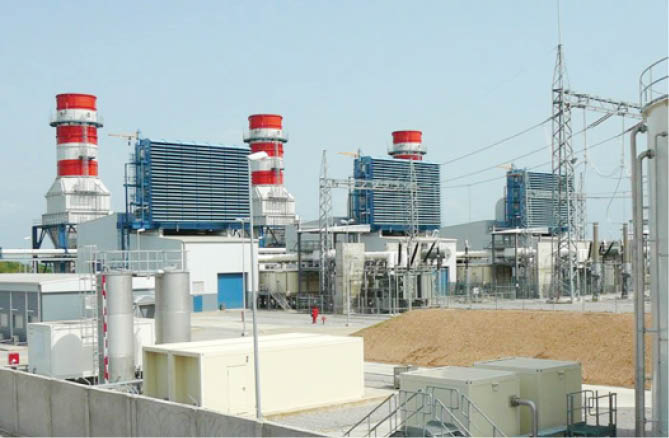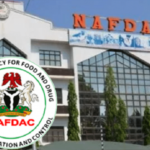Paradoxical and alarmist as the title of this piece may seem, it only captures the reality of the new dip into the vortex of crises which the country’s electricity sector may have been launched, courtesy of the ongoing sale of five of the nation’s power generating plants. The designated plants for chopping are Geregu, Omotosho, Olorunsogu, Calabar, and Benin-Ihorbor. The Federal Government and the 36 state governors have finally agreed to sell these five power plants under the National Integrated Power Projects (NIPPs), and use the expected proceeds valued at N260 billion to fund the 2023 budget. For many reasons, this venture is akin to a school boy who wastes his up-keep money and opts to sell his text books in order to feed.
As was disclosed by Alex , the Director-General of the Bureau for Public Enterprises (BPE), in an interview with journalists in Abuja, last week, parties to this deal comprising the respective stakeholders in the Niger Delta Power Holding Company (NDPH) and managers of the NIPPs – being the federal, state and local governments, reached the agreement to sell during the week. As also needs to be noted the sale was not due to the technical incapacity of the plants but just to raise money to fund the 2023 budget, which should not be seen without considering the forthcoming elections in the year. It also needs to be noted that the final agreement for the sale was not procured without significant contention, but came about after over two years of disputes and legal tussle as regards the sale of the NIPP plants.
It is interesting to note that as recently as November this year the Nigerian Governors Forum (NGF), a major stakeholder in the NIPPs had rejected the sale of these power plants then listed as ten, and had headed to court to stop the federal government from proceeding with the sale by deploying its lawyers in that direction, The 36 state governors through their chairman, Governor Aminu Tambuwal of Sokoto State released a statement on Wednesday, November 23, 2022, after a teleconference meeting held the previous Tuesday to express their displeasure over the move the move by the Federal Government. In a statement by the NGF, it claimed that “The Forum, following its advocacy that the proposed privatisation of 10 National Integrated Power Projects (NIPPs) by the Federal Government of Nigeria (FGN) should be stopped, instructed its lawyers to approach the Federal High Court which, at present has issued a court order restraining all the parties in the suit from taking any step or action that will make or render the outcome of the motion on notice seeking for interlocutory injunction nugatory”.
But by mid-December, the stand of the NGF had changed into acquiescing – even it is for five and no more ten NIPPs plants. Granted that it was a case of both parties meeting each other halfway, the situation still does not go without some incongruities.
Kwara gov honours Saraki, opposition members
Former Daily Trust editor turbaned Wakilin Sadarwan Borgu
Essentially, the situation throws up the matter of rational choice between padding the 2023 budget to provide more money for sharing and addressing the country’s epileptic electricity supply situation. Even as further clarification which the Federal Government has offered is that the proceeds from the sale of the power plants is to boost the budget for health services in the coming year, why that should be to the detriment of the power sector, which in its best conditions is a chronically sick patient, remains an anachronism. It is as if this is not a case of robbing Peter to pay Paul.
The foregoing remains questionable on two grounds of incontinence based on the inherent conditions of the 2023 budget on one hand, and the country’s power sector. on the other. Firstly, President Muhamadu Buhari had presented to the National Assembly a highly controversial budget of N20.51 trillion for the 2023 fiscal year. Seen in the context of numerals alone, it is impressive as being the highest budget figure ever for the country. However the picture changes when the specific details are considered. For instance, out of the N20.51 trillion, as much as N6.3 trillion is for debt servicing. Hence the non-debt servicing expenditure component remains just N14.21 trillion. Furthermore, with as much as N6.2 trillion (60.3%) for debt servicing, N4.99 trillion for personnel costs and N1.11 trillion for overheads, only little is left for capital development of the economy.
On the other hand, the power sector which is being ‘cannibalised’ to provide more funds for the budget is already overdue for a national emergency to be declared there. Just recently an open forum audit of the sector 2022 PwC Annual Power and Utilities Roundtable was organised by the international audit firm – Pricewaterhouse Coopers group, with hardly cheering insights emanating from the forum. One of the take-aways from the forum was that while Nigeria needs at least 40,000 kilowatts of electricity supply to service the entire country it produces an average of 7,000 kilowatts out of which only 4,000 is distributed.
While the extant state of affairs remains as uninspiring as ever, even the aspiring political leaders gunning for the Presidency can parade plans that need to be further interrogated by the country as worthy of trust to lead the country out of the present state of epileptic power supply.
That is why even as the sale of the power plants in order to raise money for the 2023 budget may seem a cliff hanging effort by the government, it offers more injury to the country that relief. This is not to say that it will be stopped even as it should be. The major fear here is more in respect of the process as that the purported sale may actually be an auction to friends and cronies of the administration who may simply raise loans from the banks buy up the plants. Is that not taking the country back to the dilemma it has with the DISCOs?
After all, in Nigeria who questions the powers that be especially when money for sharing is concerned?

 Join Daily Trust WhatsApp Community For Quick Access To News and Happenings Around You.
Join Daily Trust WhatsApp Community For Quick Access To News and Happenings Around You.



